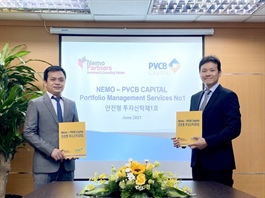Global minimum corporate tax and its impact on Vietnam
Global minimum corporate tax and its impact on Vietnam
This past week, finance officials from the US, Britain, Germany, Japan, France, Italy, and Canada – the G7 group comprising some of the richest countries in world – agreed on a worldwide minimum corporate tax on large international companies of at least 15 per cent. Jack Nguyen, partner from Mazars analysed the impacts of this policy on the e-commerce sector in Vietnam.

Jack Nguyen, partner from Mazars
|
The main reason the G7 group of wealthy nations agreed to the historic tax reform was to tackle tax avoidance by multinationals and online technology companies, agreeing to a minimum global corporate tax rate for the first time. While this is broadly welcomed by tax campaigners and labelled a moment that would “change the world” by G7 finance ministers, months and possibly years of talks still need to take place before the rules come into force.
While there is general agreement between the western economic powers, several other leading countries – including Brazil, Russia, India, China and South Africa (the BRICS countries) – will be involved in further talks next month. Sticking points also remain between countries negotiating the reforms – even within the G7.
The new tax reform is meant to address two objectives (known as the two pillars of the Organisation for Economic Co-operation and Development or OECD) to deal with companies (especially tech companies) operating in multiple countries through enabling countries to tax some of the profits made by big companies based on the revenue they generate in that country, rather than where the corporation is located for tax purposes, and setting a minimum global corporate tax rate.
The first pillar relates to countries where multinationals generate revenue would be awarded new taxing rights on at least 20 per cent of profit that exceeds a 10 per cent margin for the largest and most profitable firms (these 20/10 per cent reallocation percentages are still to be determined) while the second pillar enables countries to adopt a global minimum tax of at least 15 per cent. This new tax initiative is expected to impact 8,000 multinational companies, according to US Treasury Secretary Janet Yellen.
Whilst the agreement has been agreed in principle by the G7 countries, lots of details are to be drafted and consensus to be achieved at subsequent rounds, specifically by the G20 and G20/OECD Inclusive Framework that will meet in July 2021, and eventually ratified by each countries’ parliament.
This new global minimum corporate tax initiative will impact Vietnam in three ways: firstly, this new tax agreement may diminish Vietnam’s ability to attract foreign companies with their tax incentives.
Although the corporate income tax rate in Vietnam is 20 per cent, above the minimum rate, Vietnam currently offers tax incentives to lots of entities/projects, such as four years of tax exemption, nine years of 50 per cent tax reduction, and 10 per cent preferential tax rate for 15 years to qualified high-tech companies.
If the minimum global tax rate of 15 per cent is applied, then any tax savings enjoyed by in-scope multinationals in Vietnam will be muted. Whether this may lead to any change in the tax incentive policies in Vietnam is still dependent on many other factors, and unlikely to happen anytime soon, considering that a significant number of those benefiting from the incentive scheme would not be in scope of the new rule. In any case, for on-going entities/projects that are enjoying the incentives, they will be secured under the investment guarantee provision of Vietnam’s Law on Investment.
Secondly, for the tax allocation to market country, considering Vietnam has a relatively big market, this tax initiative will likely benefit Vietnam as it will have the international legal merit to tax tech and e-commerce companies generating revenue in Vietnam.
Taxing e-commerce and tech companies, particularly Netflix, Facebook, Google, and other marketplace platforms, has been a goal of the Vietnamese government for some time now. It is estimated that Vietnam is losing out on millions of US dollars in tax revenues from e-commerce transactions.
Although Vietnam has recently passed Decree No.26 guiding the new tax administration law that is meant to manage tax collections from e-commerce businesses (via self-registration and requiring banks to withhold taxes), it is uncertain how successful the new decree will be in actually helping in collecting taxes from these companies.
Needless to say, the new tax rule may not promise anything simpler either for Vietnam, as the tax sharing mechanism to market jurisdiction would require a capable tax administrative system and international coordination efforts. This is indeed a concern of the OECD Inclusive Framework while discussing this Pillar 1 Blueprint as being a big challenge to developing countries that normally lack tax administrative capability.
Finally, the new minimum corporate tax may impact multinational companies’ transfer pricing practice as these multinationals often use transfer pricing mechanisms to manage their worldwide tax liabilities. Transfer pricing is an area where the Vietnamese authorities review closely for tax abuses. It is still early to determine the total impact of the global minimum tax initiative on Vietnam but certainly there will be an impact in some form or another.











